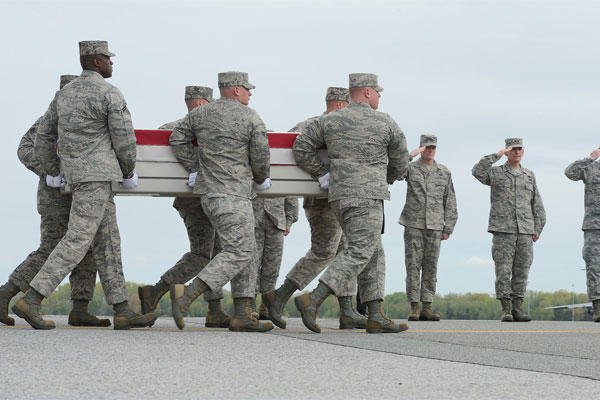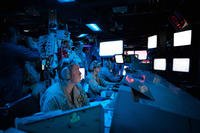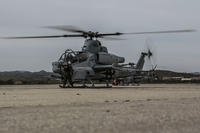SOUTHWEST ASIA -- A solemn dignified transfer of remains is conducted upon arrival at Dover Air Force Base, Del., from the aircraft to a transfer vehicle to honor those who have given their lives in service to America. These fallen warriors, however, have stops along the way including the 379th Air Expeditionary Wing here on their way home to family.
"What we do is ensure these fallen warriors get home to their families, friends and loved ones as quickly and safely as possible," said Tech. Sgt. Harvey Greenwood, the 379th Expeditionary Force Support Squadron mortuary affairs NCO in charge.
While there are only two mortuary affairs technicians locally, they're supported by the entire 379th EFSS and work closely with the 8th Expeditionary Air Mobility Squadron.
"We have a fallen warrior detail consisting of six to 12 members who carry the transfer cases to and from the aircraft," Greenwood said.
After the fallen warriors have been secured, the mortuary affairs specialist jump into action.
"The sooner we can get the member ready for transport again, the sooner they can be home and offer their families some peace," said Master Sgt. Michael Trace, the 379th EFSS mortuary affairs superintendent deployed from MacDill Air Force Base, Fla.
Being deployed ushers in a whole new set of emotions and mortuary affairs technicians learn to cope with them in their own ways.
Trace said, it takes a special person to fill their shoes.
"We're hand-selected by our squadron leadership," Trace said.
"After chosen, we attend a five-day course designed to better prepare us in handling the technical aspects of mortuary affairs," Greenwood said.
The course focuses on the procedures for case file management; administrative functions; search and recovery operations; and honor guard.
"It's a course that pulls Airmen from across the Air Force and all from force support squadrons," Greenwood said. "You have to be in the Services career field to fill this position."
It's a challenging job, Trace and Greenwood said, but they're proud to take part in sending their fallen comrades home.
Upon returning from the theater of operations to the United States, a dignified transfer begins. This is the process by which the remains of fallen military members are transferred from the aircraft to a waiting vehicle and then to the port mortuary. The dignified transfer is not a ceremony; rather, it is a solemn movement of the transfer case by a carry team of military personnel from the fallen member's respective service. A dignified transfer is conducted for every U.S. military member who dies in the theater of operation while in the service of their country and a senior ranking officer of the fallen member's service presides over the transfer.
Reminiscing, Trace said the greatest sense of accomplishment that he's done a job well is when the grieving family member comes to him and thanks him for returning their warrior home.
"Our job is one of the most stressful and rewarding at the same time," Trace said. "At the end of the day, when that family member walks up to you with tears of thanks -- that's what it's all about."
This appreciation is due, in part, to the care the Airmen give the fallen servicemember.
"They and their family made the ultimate sacrifice," Greenwood said. "We're here to make sure their loved one is handled with dignity, honor and respect in care, service and support for the families."




























